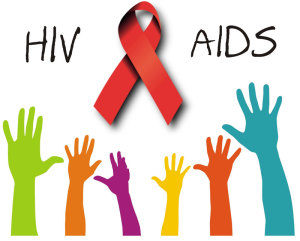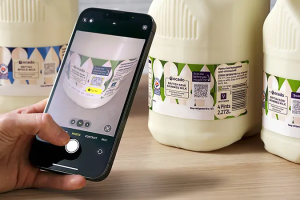 HYWEL DDA UNIVERSITY HEALTH BOARD’S Blood-borne Virus (BBV) Nursing Service is marking World AIDS Day on Monday December 1. Marked on the same date every year since 1988, World AIDS Day provides an opportunity to draw attention to the HIV epidemic around the world and many people recognise the red ribbon and wear it to show their support for people living with HIV. Currently there are almost 100,000 people in the UK living with HIV and over 35 million people worldwide.
HYWEL DDA UNIVERSITY HEALTH BOARD’S Blood-borne Virus (BBV) Nursing Service is marking World AIDS Day on Monday December 1. Marked on the same date every year since 1988, World AIDS Day provides an opportunity to draw attention to the HIV epidemic around the world and many people recognise the red ribbon and wear it to show their support for people living with HIV. Currently there are almost 100,000 people in the UK living with HIV and over 35 million people worldwide.
This year’s theme for World AIDS Day is ‘Getting to Zero’ meaning the aim is to get to zero new infections, zero discrimination and zero AIDS related deaths. Janice Rees, Lead Blood-borne Virus Specialist Nurse for Hywel Dda University Health Board has been caring for patients in the area with HIV and other blood-borne viruses since 1995. Janice said: “I have seen huge changes in the field of HIV since I first came into post.
Initially we had no treatments and being told you were HIV positive was like being given a death sentence. My role involved caring for people, very often young people, at the end of their life. With the advent of treatments, people diagnosed with HIV can now live a perfectly normal life, even having their own children safely and with minimal risk of transmission, which 20 years ago was something I never dreamt I would see.”
HIV is transmitted in the following ways: By having unprotected sex with someone who is infected, so always use a condom. They can be obtained free from sexual health clinics and the Blood-borne Virus nurses By getting infected blood into your blood stream. This may be through sharing any injecting equipment; sharing snorting equipment; having tattoos or piercings done in unhygienic conditions or by infected blood getting into open wounds. NEVER share any injecting equipment including filters, spoons, water.
Needle exchange is available throughout the counties and pharmacies taking part can be identified by the yellow and green arrow on their door. When having piercings and tattoos make sure that sterile equipment is opened in front of you and in the case of tattoos make sure a sterile ink pot is used and not a ‘communal’ inkpot. If in doubt – don’t have it done! Mothers can transmit the virus to the babies – but with treatments now available, this can be prevented.
Unfortunately, there is still a lot of stigma surrounding HIV. Ms Rees continued: “When I give someone a positive HIV diagnosis, I can reassure them that medically they will be fine, live a normal life and be well. However, the hardest part for someone newly diagnosed is how other people react. Most of the people living with HIV in the Hywel Dda catchment area have fantastic support from partners, parents, family and close friends.
However, most are petrified of neighbours and others finding out their status and reacting badly, not just towards them but their loved ones as well. Sadly a small number have been ostracised in their community and in a couple of cases felt forced to move away.” The zero discrimination message seeks to stamp out this discrimination. The Equality Act offers legal protection in areas such as employment, housing and education but sadly does not offer protection against social discrimination. If anyone thinks they may have been at risk of contracting HIV, tests (including a full sexual health check up) can be undertaken at your local sexual health clinic – for Hywel Dda call 01267 248674 between 9.30 and 4.30 Monday to Friday.
The Blood-borne Virus Nursing service also offer free confidential testing, call Janice Rees on 01437 773125 / 07899915835 for Pembrokeshire and Ceredigion or Nicola Reeve for Carmarthenshire on 01554 783 535 / 07977 486665. The nurses can also be contacted if you want any advice or have any questions about HIV. They are also able to give educational talks to any agencies, community groups, care homes etc who would like to know more about HIV and the other bloodborne viruses.
Ms Rees concluded: “One of my patients recently said to me that she longs for the day when disclosing her HIV status would be like disclosing she had diabetes, where people would be more sympathetic rather than fearful of her. I really hope that this World AIDS day everyone will think carefully and help us to stamp out discrimination.”
















Add Comment